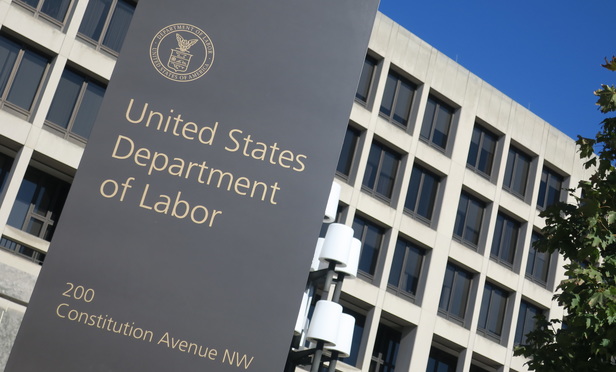Last week, the Ninth Circuit requested arguments on the whether the president, under the Constitution’s separation of powers clause, should be able to fire the CFPB director for any reason.
The Ninth Circuit’s move comes in the case of D & D Marketing Inc., a lead aggregator that the CFPB accused of buying and selling loan applications containing sensitive personal information without vetting the buyers and sellers. The company, which did business under the name T3Leads, has argued the “powers of the bureau’s director are virtually unlimited here, thus rendering the bureau’s structure inherently defective.”
“Given the national importance of the constitutional issues presented in this case, we look forward to litigating the merits in the Ninth Circuit,” said Robert Cooper, a partner at Wilson, Elser, Moskowitz, Edelman & Dicker, who is representing D & D Marketing. “Because the separation-of-powers issues associated with this federal agency affect the entire financial services industry, the Ninth Circuit’s decision to accept interlocutory review has significant impact nationwide.”
A majority of judges sitting on a full panel of D.C. Circuit this week appeared inclined to uphold the CFPB’s structure. The court could rule later this year—teeing up the chance that one of the sides moves to take the case to the U.S. Supreme Court. CFPB Director Richard Cordray’s term expires in July 2018.
Fiduciary fight begins anew. Lobbyists won’t sit on the sidelines as U.S. labor regulators—under Secretary Alexander Acosta— renew their scrutiny of the Obama-era rule that puts a new burden on investment advisers to put clients interests ahead

of their own, Financial Times reports. The rule is set to take effect June 9, a blow to business and insurance groups that fought to thwart the regulation—and a win for consumer advocates.
ThinkAdvisor has your compliance checklist here. Cases that challenge the fiduciary rule are moving forward in federal appeals courts. The Fifth Circuit is expected in late July or early August to hear a case in which the U.S. Chamber, represented by Gibson, Dunn & Crutcher’s Eugene Scalia, is a lead attorney.
‘Yes, at Google.’ An employee-run message board at Google Inc. lets workers post anonymous messages about alleged workplace violations, Bloomberg reports. Google’s leaders apparently embrace the list: “We work really hard to promote and preserve a culture of respect and inclusion,” a Google spokesperson said in a statement. “Our employees have numerous ways to raise issues—both negative and positive—with us, including through grassroots transparency efforts like this one. We take concerns seriously and take appropriate measures to address them.”
Speaking of anonymous complaints, the EEOC is taking up a fired transgender employee’s case. The EEOC this week sued an education technology company that fired a transgender employee who’d earlier posted anti-discrimination claims anonymously on the recruitment website Glassdoor.com. “While the platforms for employees to speak out against discrimination are evolving with technology, the laws against retaliation remain constant,” said EEOC trial attorney Ami Sanghvi. “The main reason to litigate is to send a strong message that we will protect workers that engage in activities, not just through traditional avenues.” The company, IXL Learning Inc., denies it retaliated against the employee and vows to contest the allegations.
Rule-busting 101: Try everything. The Trump administration has repealed, softened or otherwise targeted dozens of regulations, to the delight of Wall Street and other companies. “The administration is using every tool at its disposal to accomplish its goals,” lobbyist Sam Geduldig told Bloomberg. “It’s the spaghetti against the wall approach: Try it all.”
The growing gig economy. As Recode puts it: “It’s an Uber world.” A joint project by Intuit and Emergent Research, according to CNN, shows the gig economy—estimated at about 4 million workers now—is expected to double by 2020. Former Obama administration economist Alan Krueger is making the case for a new classification of employee—the “independent worker.”
Ford in fast lane? Ford’s executive shakeup is all about driverless cars, CNBC reports. CNBC says the Detroit company is panicking—trying to catch up with rival Waymo, the Google self-driving spinoff. Fortune, reporting on a new report from Navigant Research, puts Ford and GM as “leaders” in the self-driving car race. Read Ford’s announcement here. It’s an open question whether consumers even want self-driving cars—they don’t, according to this new MIT study.
Shortchanged: Uber’s planning to pay tens of millions of drivers in New York who—through apparent miscalculations—were shortchanged on how much they earned on rides, The Wall Street Journal reports. The New York Times reports here on Uber’s error. In other Uber news: Jim Callaghan, the company’s general counsel in Europe, Africa and the Middle East, is stepping down, according to Recode.
Citigroup’s settlement this week with the U.S. Justice Department marked the first major bank to resolve a criminal case under U.S. Attorney General Jeff Sessions, Corporate Counsel reports. And the case renewed prosecution interest in holding compliance officers accountable for corporate misconduct. The New York Times has more here. White-collar defenders are watching for signs about how the Justice Department’s Criminal Division embraces or cast asides a pilot FCPA program that began in the Obama administration. Meanwhile, Law.com has this report on how companies can keep calm while under investigation.
Copyright the National Law Journal. All rights reserved. This material may not be published, broadcast, rewritten, or redistributed.




